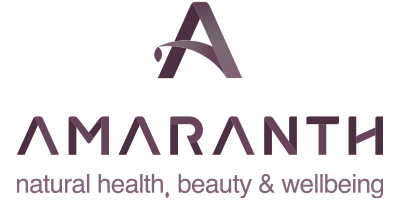The Best Supplements and Natural Remedies for Hay Fever

Although it has felt like winter for a long time, spring is here and for many that means hay fever season.
In this blog we will explain what hay fever is and provide some information about the natural remedies available and ways these may help to alleviate your symptoms.
Before we discuss hay fever remedies, it is worth understanding more about allergies in general, and the allergic response.
An allergy occurs when our immune system reacts to a substance or food (the allergen) that is not ordinarily harmful to the body. On contact or exposure to the allergen, the body releases white blood cells to fight this perceived invader.
During subsequent exposure, the immune system ‘remembers’ this substance as a potential threat and responds by releasing antibodies and inflammatory mediators such as histamine. This is a protective reflex which triggers symptoms such as increased mucus in the respiratory tract, fluid in the eyes and itching skin to help expel the invader.
In the case of hay fever, the allergen is pollen. A reaction can be triggered by many different types of pollen, and this is thought to affect up to 30% of adults and 40% of children. Symptoms are intensified during peak hay fever season (between March and June) and commonly include running eyes, sneezing, and nasal, sinus and airway congestion.
Herbs and Nutrients for Hay Fever and Seasonal Allergies
Here is an outline of the supplements and remedies recommended by the team of expert nutritional therapists at Amaranth. If you would like help choosing a remedy that’s right for you then please book a free one to one review.
SYMPTOM MANAGEMENT
Vitamin C. Vitamin C has natural anti-histamine properties and anti-inflammatory effects. Supplementation with 2000mg over a period of two weeks has been shown to reduce blood histamine concentration by 30-40%, thus reducing hay fever symptoms.
Quercetin. Quercetin is a powerful antioxidant, found naturally in foods such as onions, apples and berries. It is shown to inhibit the manufacture and release of histamine and other inflammatory mediators. In one recent study quercetin provided better relief of nasal symptoms compared with antihistamine medication, and with no side effects.
Black Seed Oil. Black seed oil has been used therapeutically for thousands of years. It is well researched for its anti-inflammatory and anti-allergy benefits. Assessment of four allergy studies featuring allergic rhinitis, bronchial asthma and atopic dermatitis found decreased severity of symptoms following black seed supplementation.
Bromelain. Bromelain is a protein digesting enzyme, naturally occurring in foods such as pineapple and papaya. It demonstrates anti-inflammatory properties and has been shown to reduce swelling in the nose and sinuses, beneficial for those suffering from hayfever.
Nettle. Nettle contains biologically active compounds that reduce inflammation. It also reduces the volume of histamine produced by the body in response to an allergy. Sipping nettle tea throughout the day is a great way to keep levels topped up.
Reishi Mushroom. Reishi contains polysaccharides that help to balance the immune response. It also exerts strong anti-inflammatory and anti-histamine activity. By addressing immune system over-reactivity as well as the histamine-mediated inflammatory response, it is commonly used to both alleviate symptoms and to prevent their development.
FURTHER SUPPORT
The incidence of allergies is on the rise. Theories suggest that this surge in cases is due to increased exposure to chemical pollutants which damage our gut barrier. This allows irritants to enter the circulation, promoting an immune response.
Key nutrients to support the gut barrier include Omega 3 fats and Glutamine.
Omega 3. Omega 3 fats are anti-inflammatory and they support the health of mucus membranes. These essential fats are found primarily in oily fish but most of these are also high in histamine. Omega 3 is also found in plant foods such as chia and flax seeds but supplementation is recommended to ensure adequate intake.
Glutamine. Bone broth is rich in glutamine, a key amino acid used to support the intestinal lining, both directly and indirectly via the gut microbiome. Additionally, it is shown to promote cellular repair and to suppress pro-inflammatory signalling pathways.
We also know that the gut microbiome plays a key role in health and wellbeing. Beneficial bacteria support immune system function (including the regulation of histamine levels and inflammation) and they produce molecules that help to repair and strengthen the gut lining.
Scientists believe that many allergies are caused by a lack of bacterial diversity in our gut so taking a high-quality probiotic supplement before, and during, the hay fever season is recommended.
Some of our favourite probiotics at Amaranth include Nature’s Plus Pro. Bio Mega, Udo’s Choice Super 8 Immune and, new in store, Living Nutrition’s Organic Fermented Symbiotic.
Get 15% off our nutritionist recommended hay fever supplements:
Other Hay Fever Tips:
- Check the pollen forecast daily so you can see when pollen levels will be high. Plan your activities around this and make sure that you keep doors and windows closed during these times.
- Wash your clothes and hair regularly to prevent pollen becoming caught. Change your clothes when returning to the house from outdoors, and avoid contact with your bedding and towels. Additionally, dry your washing inside to avoid further contact with pollen.
- Pets can carry pollen from the outdoors and bring it inside so keep them washed and away from furniture that you sit/sleep on.
- Consider investing in an air purifier to help clean the pollen out of the air. However, do make sure you are changing the filters regularly.
References:
https://www.ncbi.nlm.nih.gov/pmc/articles/PMC8532887/
What is an Allergy? | Allergy UK | National Charity
Allergies – Viridian Nutrition (viridian-nutrition.com)
Hay fever and histamine – Nouveau Healthcare
Powell, M (2013). Medicinal Mushrooms: The Essential Guide. Mycology Press.

